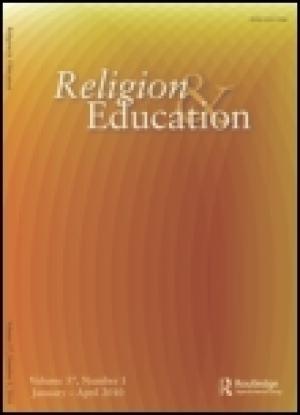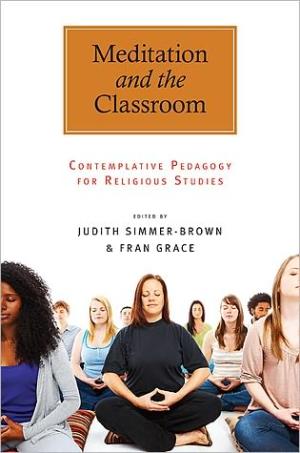Resources
Recent research by Barbara Walvoord suggests a perceived disparity between faculty learning objectives and students' desire to engage “big questions” in the introductory religion classroom. Faculty opinions of such questions are varied, ranging from a refusal to employ any approach that diverts attention away from critical thinking, to a willingness to integrate personal questions of meaning and purpose into the introductory religion course. This essay argues that, in light of work currently being done by such developmental theorists as Sharon Daloz Parks and Marcia Baxter Magolda, the integrative approach has much to commend it. It concludes with suggestions for how religion faculty can expand this approach through learning covenants, service learning, and seeing the religion classroom as a gateway to various mentoring communities on campus.

Journal Issue.

A groundbreaking book on using meditation in education and how it can enhance teaching and learning. Meditation and the Classroom inventively articulates how educators can use meditation to educate the whole student. Notably, a number of universities have initiated contemplative studies options and others have opened contemplative spaces. This represents an attempt to address the inner life. It is also a sign of a new era, one in which the United States is more spiritually diverse than ever before. Examples from university classrooms and statements by students indicate benefits include increased self-awareness, creativity, and compassion. The religious studies scholars who have contributed to this book often teach about meditation, but here they include reflections on how meditation has affected them and their teaching. Until recently, though, even many religious studies professors would find sharing meditation experiences, let alone teaching meditation techniques, a breach of disciplinary and academic protocols. The value of teaching meditation and teaching about meditation is discussed. Ethical issues such as pluralism, respect, qualifications, power and coercion, and avoiding actual or perceived proselytization are also examined. While methods for religious studies are emphasized, the book provides valuable guidance for all those interested in this endeavor. (From the Publisher)
Spiritual formation is both an opportunity and a challenge for educators in Christian colleges and seminaries. How can students be nurtured and guided in developing spiritually within the curriculum? Drawing on a number of educators, studies, and arguments, this article develops a rationale for engaging in spiritual formation and for the use of practical assignments or "soul projects." A selection of such projects is grouped into genres, followed by a brief exploration of best practices and an evaluation of such assignments.
“Ascetic Self-discipline: George Marsden and The Outrageous Idea of Christian Scholarship Rejoinder”